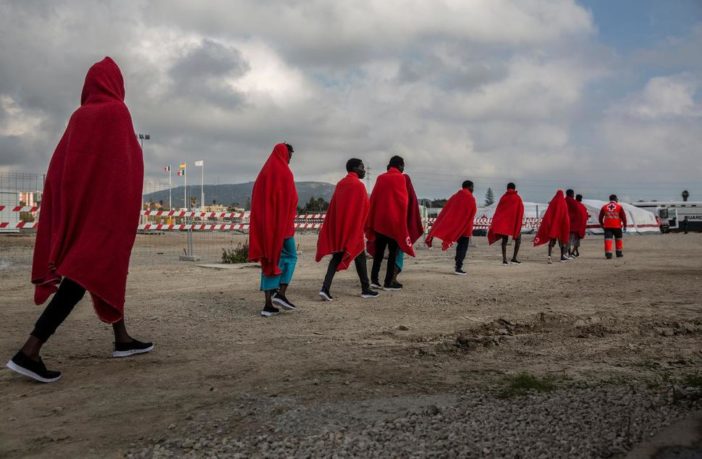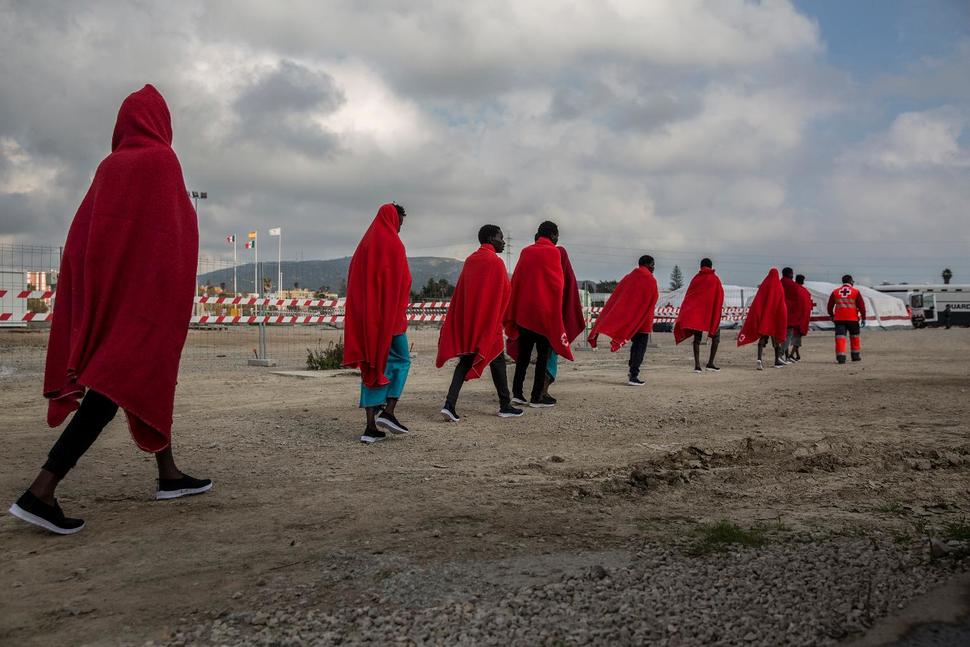US News
Associated Press
By Lorne Cook
The head of the European Union’s border agency says there is “no burning crisis” right now in Europe due to migrant arrivals, but that more and more African people are trying to enter through Spain from Morocco.
FILE – In this Dec. 28, 2018 file photo, migrants disembark at the port of Crinavis in Algeciras, Spain, after being rescued in the Central Mediterranean Sea. Frontex chief Fabrice Leggeri said Wednesday, Feb. 20, 2019 that there is “no burning crisis” right now in Europe due to migrant arrivals, but that more and more African people are trying to enter Spain from Morocco. (AP Photo/Olmo Calvo, File)
BRUSSELS (AP) — The European Union faces “no burning crisis” right now over migrant arrivals, but more people from Africa are trying to enter Europe through Spain from Morocco, the head of the EU’s border and coast guard agency said Wednesday.
The EU has been plunged into a severe political crisis due to differences over how to handle the arrival of people seeking sanctuary or jobs. It was sparked by the entry of well over a million migrants — many fleeing conflict in Syria and Iraq — in 2015. Greece and Italy were overwhelmed by the large number of arrivals, while their EU partners balked at sharing the load.
“Right now, we are not in the middle of a migration crisis at the external borders but, of course, we do see that there is still a pressure,” Frontex chief Fabrice Leggeri told reporters in Brussels.
Leggeri said that unauthorized migrant crossings of the Mediterranean Sea dropped by more than a quarter last year, to 150,000 arrivals. The number of people leaving Libya and Tunisia on the central Mediterranean route for Europe plunged by 80 percent in 2018, to around 23,500 arrivals, Leggeri said.
To ensure that nations can cope with any repeat of 2015, the EU’s executive body, the European Commission, has encouraged the 28 member countries to adopt permanent refugee quotas, but the move has been rejected, notably in Eastern Europe.
The EU faces relatively few migrant arrivals compared to Turkey, Lebanon and Jordan. But the focus on migration — seen as a sure-fire vote winner for populists in the east — is increasing in the run up to EU-wide elections on May 23-26. The Hungarian government — which erected razor-wire fences in 2015 to keep migrants out — is funding election campaign posters that slam the Commission and “Brussels’ plans to encourage immigration.” The Commission rejects the campaign as “ludicrous” and “fake news.”
The reality, according to Frontex figures, is that entries into Greece have slowed to a comparative trickle since the EU agreed to pay Turkey billions in refugee support money to encourage the Turkish coast guard to stop migrants from leaving. Arrivals through the central Mediterranean are now at their lowest levels since 2012, well before Europe’s “crisis.”
Most pressure is much further west. Unauthorized migrant entries into Spain rose by 160 percent, to 57,000 crossings, last year.
“It’s in fact, in absolute figures, the route number one to the European Union in terms of illegal crossings,” Leggeri said. “Morocco is the main departure point to Europe on that route.”
Many of those crossing are Moroccans. Frontex reports that more Moroccans now arrive than Iraqis or Afghans, but that Syrian nationals are still entering in the biggest numbers. The number of Turkish citizens fleeing their country tripled in 2018, to more than 7,900, with most crossing the land border into Greece.
Despite the claims of migrant strain in Italy, Greece and elsewhere, only around 148,000 migrants not eligible to stay in Europe were actually sent back home last year, little more than half the number of return decisions, according to Frontex.
Copyright 2019 The Associated Press. All rights reserved. This material may not be published, broadcast, rewritten or redistributed.








